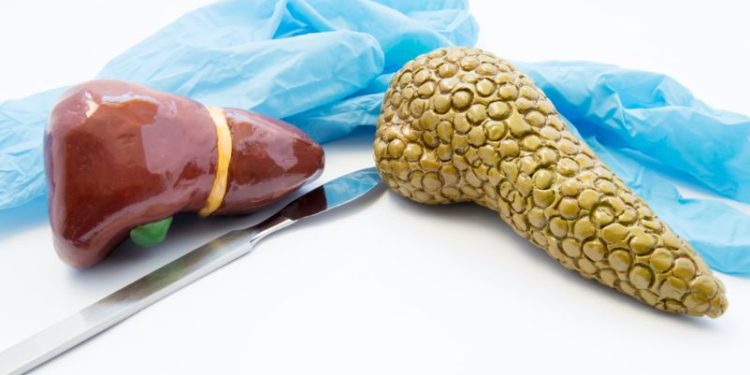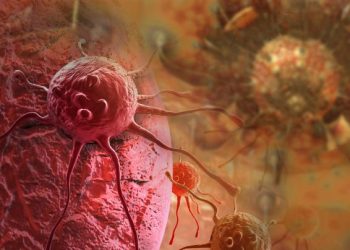Knowing your prognosis will help you and your doctor make decisions about treatment. But remember that statistics are based on averages, and every person is different.
Liver cancer treatment options include surgery, ablation therapies that use heat (radiofrequency or microwave ablation) or extreme cold to destroy tumors, and chemotherapy drugs. At MD Anderson, we also offer experimental treatments.
Stage of Cancer
The stage of cancer describes how far the abnormal cells have spread from where they started. This information helps doctors plan the best treatment.
For most cancers, there are 3 or 4 stages. A person with stage 0 has a clump of cells that haven’t spread to nearby tissue and is sometimes called pre-cancer or carcinoma in situ. This is usually easily treatable by surgery or radiation.
In general, the higher the stage number, the more advanced the cancer. One common system assigns a number from I through IV to describe how much the cancer has grown and whether it’s spreading. Other staging systems use different numbers and may add letters like a, b or c to help doctors divide the cancer into smaller groups.
Your doctor may also give you a grade to explain how abnormal the cancer cells look under a microscope. Low-grade cells look more similar to normal ones and grow more slowly than high-grade cells. The stage and grade of your cancer will help your doctor decide what treatment is best for you.
The first step in finding out the stage of your cancer is a physical exam and medical history. Your doctor will ask about any symptoms you’ve had and what tests you’ve already had, including any X-rays, imaging or scans. Your doctor will also use the results from any biopsies of your cancer or lymph nodes.
There are two types of staging for liver cancer: clinical and pathological. Clinical staging is done before treatment starts and is based on the information from your physical exams, medical history and any X-rays, imaging or other tests you have had. Pathological staging is based on the same information but includes any new information that doctors find during surgery to remove your cancer or from the lab when they examine the cancer cells after it’s removed.
Cancer that has spread to other parts of the body is called metastatic cancer. It can’t be treated with a tumor-destroying operation, but your doctor may still try to remove the cancer or other treatments like chemotherapy or targeted drug therapy may be used instead.
Symptoms
The liver provides important functions that support normal body function, including digestion and detoxification. If cancer begins in the liver, it can disrupt these processes and lead to a wide range of symptoms. These can include fatigue, loss of appetite, abdominal pain, jaundice (yellowing of the skin and whites of the eyes), vomiting, fever, itching, and weight loss. Liver cancer can also obstruct the flow of bile, causing an infection called cholangitis. This can cause a high fever and chills and can be life-threatening.
If a tumor is small and caught early, it can be treated by surgery to remove the tumor. However, if the tumor is large or has spread, treatment can be more challenging. The stage of the cancer determines which treatments are available and how effective they will be.
Your doctor will use imaging tests to look for cancerous tissue. These may include ultrasound, CT scans, or MRI scans of the liver and surrounding organs. An MRI scan produces three-dimensional pictures of your liver and surrounding organs and can help determine the location and size of a tumor. An ultrasound test produces pictures of the liver to identify a possible tumor and how it is growing. Your doctor may also order an AFP blood test to measure your levels of the protein AFP. This can help find out if your cancer is growing quickly and if it has spread to other areas of the liver.
The next step is a biopsy. During this procedure, your doctor will take a sample of liver tissue and send it to a lab for testing to determine if the tissue is cancerous. If a tumor is found, your doctor will likely treat it with chemotherapy drugs or radiation therapy to kill the cancer cells. These drugs are given systemically, which means they go throughout your body — either through a pill or intravenously. They may also be delivered directly to the tumor, using a technique known as transarterial chemoembolisation or TACE.
If a cancerous tumor is small and has not spread, your doctor can monitor it with regular checkups and tests. This approach is called active surveillance and can help prevent the cancer from getting worse.
Diagnosis
Often, your doctor will diagnose liver cancer after examining you and doing blood tests. You may also have imaging tests such as abdominal ultrasound, computed tomography (CT), or magnetic resonance imaging (MRI). These techniques produce detailed images of your abdomen and can help identify the location of a tumor. They can also indicate whether the cancer has spread to nearby blood vessels or to other organs in your body.
A liver biopsy is a procedure in which a small tissue sample from your liver is removed for examination under a microscope. This can confirm the presence of cancer and tell what type it is.
The stage of your cancer is important because it determines the best treatment options for you. Liver cancer is classified by how large it is, whether it has spread, and what type of tissue it is made of. In addition, your health care team will use the TNM (tumor, node, and metastasis) system to stage cancer, although other systems are sometimes used.
Your doctor will use your medical history, the results of your tests, and the staging information to recommend a treatment plan. The type of treatment you receive will depend on the type of liver cancer you have, its stage, and other factors such as your general health, age, and how quickly it is growing.
If your liver cancer is in the early stages, your doctor can usually cure it with surgery. In more advanced stages, the cancer can be hard to treat because it has spread to other parts of your body. If the cancer has spread to your lungs or bones, it is considered metastatic liver cancer and is more difficult to treat.
Your doctor may suggest a combination of treatments to manage your symptoms and improve your quality of life. These treatments include surgery, ablation therapy, targeted therapy, and immunotherapy. Your doctor may also refer you to a specialist for palliative care, which is designed to improve your comfort at the end of life. This includes a team of nurses and doctors who can provide support and care for your symptoms.
Treatment
The first step is to find out what stage your cancer is. Imaging tests can help with this, including ultrasound, computerized tomography (CT) scan and magnetic resonance imaging (MRI). Your doctor may also order a liver biopsy. During a biopsy, doctors remove a small sample of tissue from the liver and check it for cancer cells under a microscope.
Benign growths (tumors) that aren’t cancer can sometimes be removed by fine needle aspiration or laparoscopy, but a biopsy is the only way to find out if a tumor is cancer. The next step is to decide on a treatment plan.
During the early stages, your treatment options include surgery, using heat to destroy the cancer (thermal ablation) and targeted medicines that target cancer cells. Your doctors will talk to you about the benefits and risks of each option. They may recommend palliative care, which includes helping you control pain and other symptoms.
Your doctor will give you medications that are designed to decrease the growth of tumors and blood supply to the tumors. These are called targeted therapies because they work on specific molecules that cancer cells need to grow, survive and spread. They can be used in combination with chemotherapy or radiation to increase how effective the treatments are.
You may have a surgery called liver resection or transplant if your cancer is in the early stages and hasn’t spread. Your doctor may also recommend a procedure to reduce the amount of blood flowing to the tumor, which is called embolization. During this procedure, your doctor will insert small particles to create a partial blockage of the blood vessel that supplies the tumor. Another blood vessel, called the portal vein, will continue to nourish the healthy parts of your liver.
If the cancer is in the later stages, your options may include chemotherapy or using a machine to deliver radiation directly to the tumor (radiofrequency ablation). You might also choose to be part of a clinical trial that is testing new ways to treat your type of cancer.









